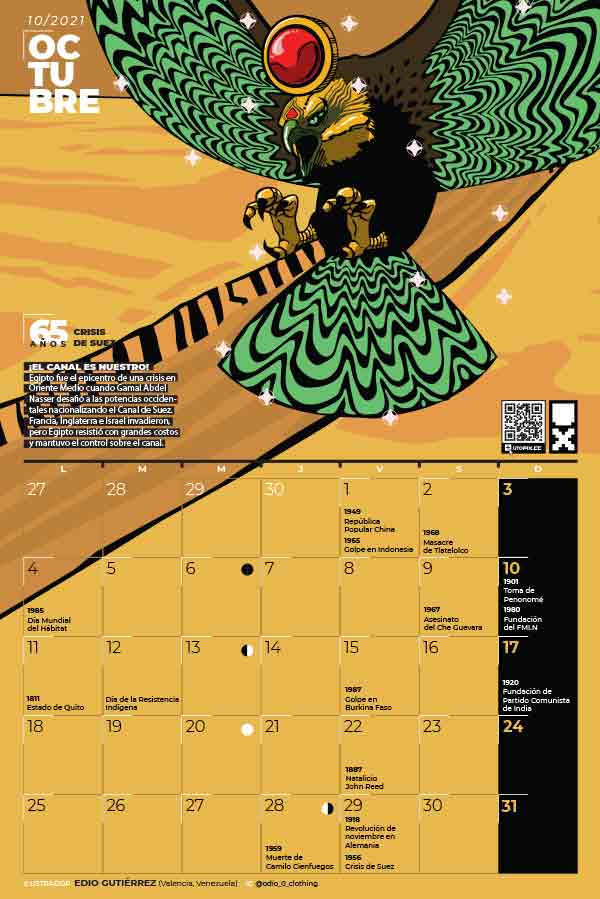ESP – ENG
On July 26, 1956, in a speech in Alexandria, Egyptian President Gamal Abdel Nasser mentioned Ferdinand de Lesseps. This was the sign for the armed forces to spring into action and seize the Suez Canal. De Lesseps had been responsible for the waterway construction in 1869, and control over the vital passage had always been in British and French hands.
By nationalizing the Suez Canal, Nasser sent a clear message that his country’s sovereignty stood above imperialist interests. It was a move that shocked the world, the French and British were outraged by the Egyptian leader’s nerve. The war drums started to rumble.
The Middle East was submerged in tension, in no small part due to the state of Israel’s occupation of Palestine. Nasser’s support for the Palestinian cause made Israel a natural ally for Britain and France.
On October 29, Israeli forces invaded the Sinai peninsula. The British and French followed days later. The invading armies had a huge firepower advantage. In response, Nasser blocked the canal and called for a “people’s war” against the foreign superpowers.
The invasion generated an immediate, widespread rejection all over the world, with opposition from Americans and Soviets alike. US President Dwight Eisenhower took advantage to mediate a ceasefire via the United Nations. Significantly, the invading forces did not manage to seize the canal.
The Suez Crisis was a tough blow for British and French colonialism, accelerating independence processes in overseas territories. In contrast, Israel left emboldened, occupying the Sinai peninsula for several months more.
For his part, Nasser scored a political victory by keeping control of the canal and standing up to imperialist powers. The Egyptian president became a reference for Global South struggles and for the emerging Arab nationalism.
Download here the printable version of the calendar and put it in your wall.
Writing: Ricardo Vaz. Ilustration: Edio Gutiérrez
